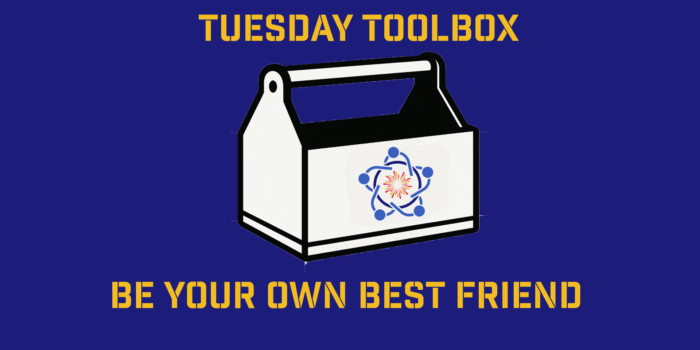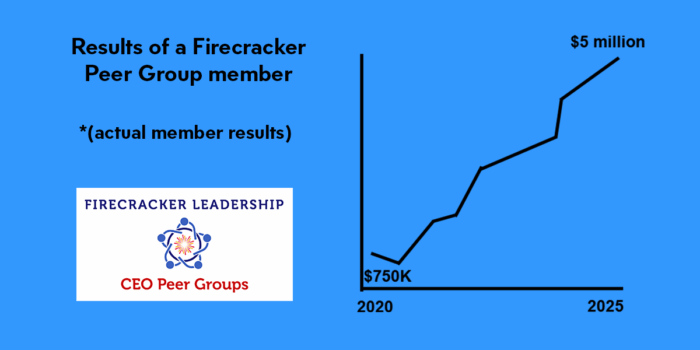My Wednesday Wish for You: To Be Your Own Best Friend We often push ourselves harder than anyone else ever…
Pick one and hone it…
I’m sure you will agree that not all business leaders are created equal, starting from the CEO on down.
But I have found the more challenging question to be what distinguishes the best leaders from all the rest, especially before they have been selected and tested in a new role. My own conclusion, after years of experience and consulting, is that leadership is largely about mindset.
Thus I was pleased to see the same conclusion in a new book, “CEO Excellence,” by Carolyn Dewar, Scott Keller, and Vikram Malhotra, each a Senior Partner at McKinsey & Company. After their research and discussions with many Fortune 500 CEOs, they detailed six mindsets they found most prevalent in effective and inspirational business leaders in large companies.
I believe these same mindsets are equally applicable to the entrepreneurs I mentor, and all of you small business leaders, so I offer you my summary of the authors’ conclusions, paraphrased here, with my own insights:
1. Be bold in vision, strategy, and resource allocation.
Leaders with this “be bold” mindset are willing and able to take radically unique direction-setting actions in the face of today’s pace of change and customer demands. You need to make it about more than money, focus on future possibilities, solve for the whole, and kill as much as you create.
As an example, Elon Musk, while best known for his success with Tesla electric vehicles, continues to make forays into other transportation alternatives, with SpaceX, Hyperloop, and others. He is known for his bold mindset, and an all-in commitment to his visions.
2. Get organization alignment through culture and talent.
Today even small businesses need complex organizations that work together in alignment, remote and online, including marketing, sales, delivery, and support. You need to build and maintain a team culture of engagement, accountability, and results, always looking for talent and new technology.
One of the primary keys to getting organizational alignment is to clearly communicate to all the mission, and potentially the higher purpose for the business. I recommend that you validate that alignment by asking team members the “Why?” question on a regular basis.
3. Make the team the star to do the heavy lifting.
With too many leaders I know, the mindset is making themselves successful, rather than the team. You as the leader need only to set the template and the tempo, like conducting an orchestra, and demand and reward disciplined execution of tasks that only the team can do. Keep the teams strong.
Another key to team performance is a regular reward program for teams, as well as individuals. Giving the team a chance to publicly showcase their achievements will allow the individual stars to shine as well. Praise for teams always works better than criticism.
4. Tap the wisdom of elders and the Board to help the business.
You must build a foundation of trust to get the relationships you need for honest communication, focus on the future, and real coaching on how to improve the business. In my experience, this will result in better contacts, advance warning on changes needed, and better performance.
Unfortunately, I feel that many business leaders see and treat their Board as a burden, rather than an asset. They don’t recognize the negative image they are conveying to peers and other senior leaders. Every business leader needs good “managing up” skills.
5. Focus stakeholder engagement on the big picture.
The best leaders don’t dodge stakeholder engagement, but always approach it with a mindset of highlighting the big picture, the higher-level purpose, and getting to the essence of issues. They demonstrate a personal resilience that enables them to show sound judgement during a crisis.
6. Boost personal impact through consistency and energy.
Your challenge as a leader is not only managing your personal effectiveness, but also generating energy in others by staying positive, being a role model, and giving hope. It’s important that you stay humble, don’t make it all about you, and maintain a small sounding board of advisors.
In this new age of rapid change, instant world-wide communication through social media, and public activism, business leaders need to tune their mindset and focus more to the “soft stuff” of the business, as well as the “hard stuff.”
Remember that your objective as a leader must now be much broader than pure financials – you can change the world, as well as your own legacy.



